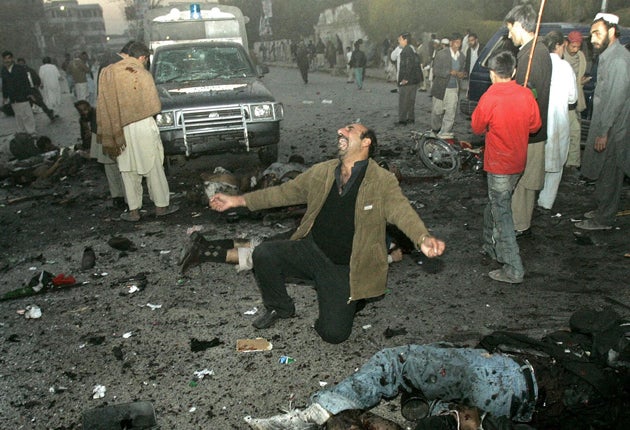Bhutto's death 'could have been prevented'
Pakistan to hold its own investigation after UN inquiry condemns country's security

Pakistan has said it will push ahead with its own investigation into the murder of Benazir Bhutto after an UN inquiry into the former prime minister's assassination strongly criticised the country's security forces for failing to protect her. The UN team also accused the security establishment of failing to properly investigate the crime and even of blocking its own inquiry.
More than two years after Ms Bhutto was killed while attempting a political comeback, a three-member UN panel, asked to investigate by the Pakistani government headed by the late leader's husband, Asif Ali Zardari, concluded her death had been entirely "avoidable".
Without directly identifying the country's then leader, General Pervez Musharraf, the panel said a new investigation should look not just at the possible involvement of the Taliban and al-Qa'ida but also of a Pakistani establishment that includes the military, intelligence agencies and the business elite.
Announcing the team's findings at the UN on Thursday evening, its chairman, Heraldo Munoz, Chile's UN Ambassador, said: "It is clear that warnings were passed on, on various occasions, and Ms Bhutto also received information in this regard from outside Pakistan. Nevertheless, what we have found is that the passing of information was not accompanied by commensurate measures to protect her, particularly given the fact that an assassination attempt had been made against her the very day she returned to Karachi."
Ms Bhutto, 54, was killed in December 2007 while leaving a political rally in Liaquat Bagh, a park in the city of Rawalpindi, where she had been campaigning ahead of upcoming parliamentary elections. As she was being driven from the park, standing up through the sun roof of her bomb-proof car, a young man stepped forward and fired three shots at her before a large bomb detonated, killing two dozen people.
Investigators from Scotland Yard – called in by Mr Musharraf – subsequently concluded she had died after hitting her head on the car. Controversy has surrounded her death from the moment she was killed.
Police at the scene hosed down the area within hours of the blast, destroying evidence, and no proper post-mortem examination was carried out on the twice former premier. Both failings were highlighted by the UN team, which also criticised the security provided by Ms Bhutto's party – overseen by the now home minister Rehman Malik – as lacking leadership and "poorly executed".
But the investigators went much further, levelling damning criticism at the country's notorious intelligence agencies and the police. "The commission believes that the failure of the police to investigate effectively Ms Bhutto's assassination was deliberate," said their report. "These officials, in part fearing intelligence agencies' involvement, were unsure of how vigorously they ought to pursue actions, which they knew, as professionals, they should have taken."
After around a decade in exile, Ms Bhutto had returned to Pakistan to head the election campaign of her Pakistan People's Party after brokering an agreement with Mr Musharraf that granted amnesty to her, her husband and scores of officials who faced criminal allegations.
Yet her return was immediately rocked by violence. Flying into Karachi in October 2007 where she was met by hundreds of thousands of supporters, Ms Bhutto's convoy was subsequently attacked by a massive bomb which killed more than 130 people, many of them members of her party's youth wing. Her killing two months later thrust her husband to the forefront of the campaign and the PPP won the election. Mr Zardari was subsequently elected president by the country's parliament.
The UN team had not been tasked to investigate who killed Ms Bhutto. But it urged Pakistan to carry out a "serious, credible criminal investigation". Five alleged Islamist militants were charged in 2008 but their trial was stopped at the request of Mr Zardari's government to allow more investigations. That is likely to be restarted.
Meanwhile, an aide to the former president, Mr Musharraf, dismissed claims that the government had failed to act on warnings about the threat to Ms Bhutto and described the report as "a pack of lies". Speaking to the Associated Press, Rashid Qureshi added: "This chief UN investigator was not the relative of Sherlock Holmes."
Join our commenting forum
Join thought-provoking conversations, follow other Independent readers and see their replies
Comments
Bookmark popover
Removed from bookmarks